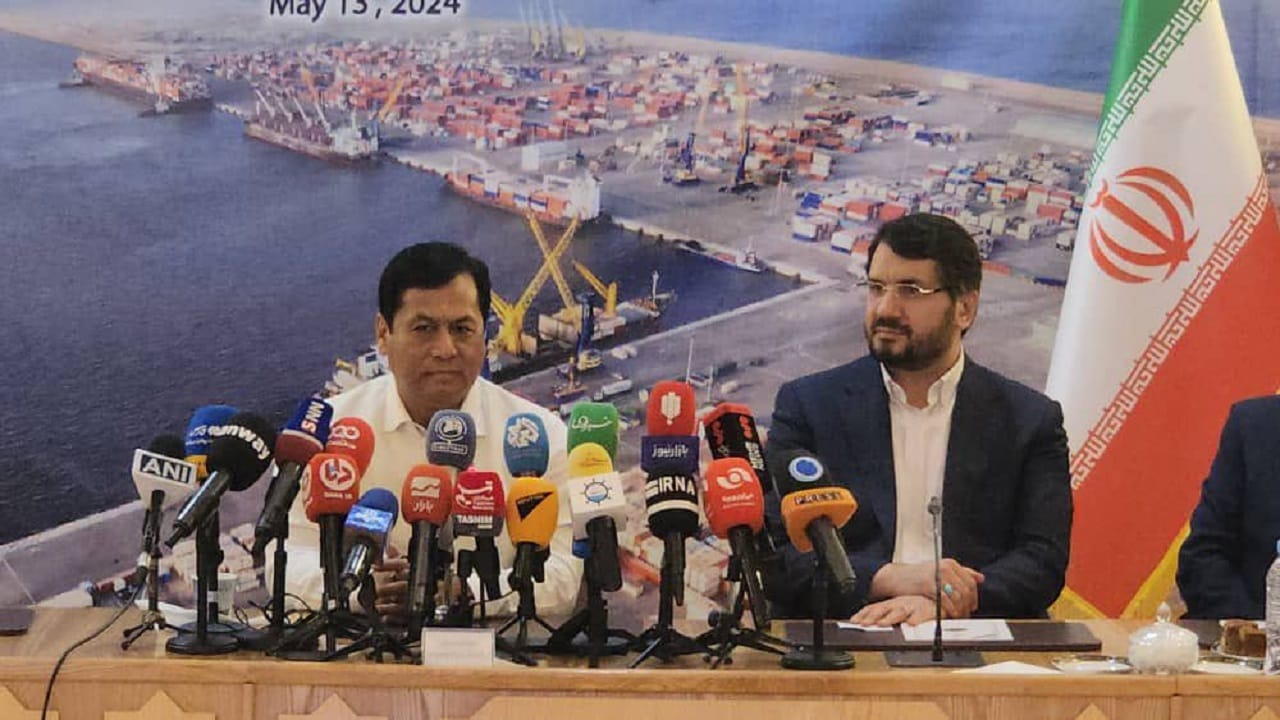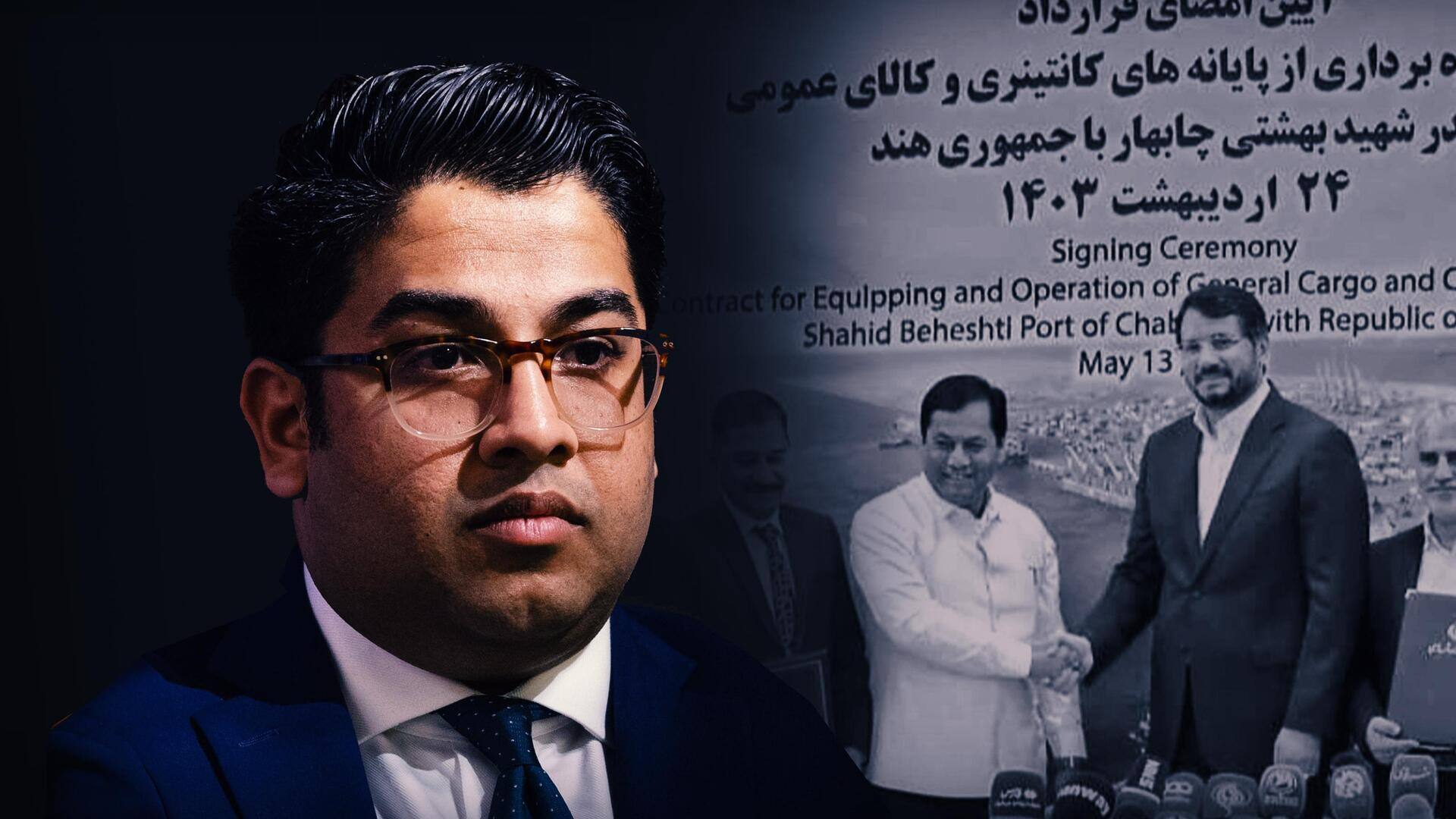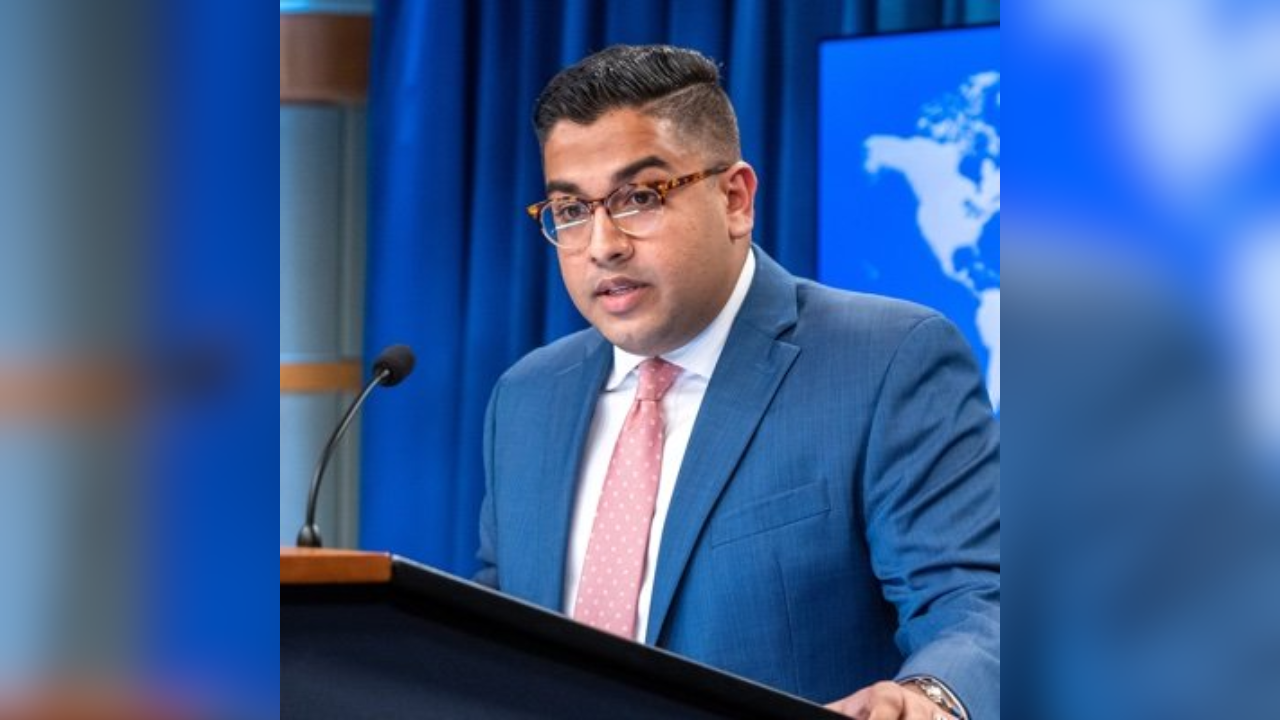Iran-India, Chabahar Port Conundrum, With The US Warning Of Sanctions, Iranian Envoy Confident That India Would ‘Escape’ Sanctions, EAM Jaishankar Talks Tough Expressing ‘Narrow Views’

The United States has issued a warning about potential sanctions against any nation engaging in business ventures with Iran, shortly after India inked a decade-long agreement to oversee a port in Tehran.
Back in 2016, India undertook a pact to enhance the strategically crucial Chabahar port, located near Iran’s border with Pakistan. On Monday, it formalized an extended commitment with Iran to develop the port further.
Describing it as a significant milestone in the relations between India and Iran, India’s shipping minister hailed the move.
Nevertheless, the decision might not sit well with the US, which has imposed over 600 sanctions on entities associated with Iran over the past three years.
During a press briefing on Tuesday, Vedant Patel, the Deputy Spokesperson for the US State Department, reiterated the continuance of US sanctions on Iran and emphasized Washington’s determination to enforce them.
He cautioned that any individual or entity contemplating business dealings with Iran should be mindful of the potential risks and the looming threat of sanctions.
 The Important Chabahar Port, India- Iran Deal
The Important Chabahar Port, India- Iran Deal
India assumed control of the port towards the end of 2018, offering a transit route for Indian merchandise to reach Afghanistan and Central Asia without traversing through Pakistan, given the strained relationship shared between the neighbouring countries.
Officials report that to date, Chabahar port has facilitated the shipment of 2.5 million tonnes of wheat and 2,000 tonnes of pulses from India to Afghanistan.
Even as on Monday, India’s shipping ministry announced the signing of a long-term agreement between Indian Ports Global Limited (IPGL) and the Port & Maritime Organisation of Iran for the port’s development, the US prospective sanctions loom large.
According to Iran’s Minister of Roads and Urban Development, Mehrdad Bazrpash, IPGL will inject approximately $120 million into the project, supplemented by an additional $250 million in financing, bringing the total value of the contract to $370 million.
India’s Foreign Minister, S Jaishankar, expressed optimism that the agreement would pave the way for larger investments in the port’s infrastructure.
 Why the Iranian Ambassador Believes US Won’t Impose Sanctions on India Regarding Chabahar Port
Why the Iranian Ambassador Believes US Won’t Impose Sanctions on India Regarding Chabahar Port
In response to the stance taken by the United States, Iranian Ambassador Iraj Elahi asserted on Tuesday that India’s significance on the global stage would deter any nation from imposing sanctions on India due to its collaboration with Iran.
Elahi said that potential US sanctions could adversely affect the trade interests of several nations that see Chabahar as a key transit point.
Back in 2016, when New Delhi, Tehran, and Kabul entered into a trilateral agreement to develop the port, the US granted an exemption for Chabahar from its sanctions targeting Iran.
This decision was influenced by the port’s potential to boost trade and economic progress in Afghanistan, alongside lobbying efforts from the Indian side.
However, during a routine media briefing at the US State Department, Deputy Spokesperson Vedant Patel reiterated the continuation of American sanctions on Iran, emphasizing ongoing enforcement measures.
Patel reiterated the US stance, emphasizing that any entity or individual contemplating business dealings with Iran must acknowledge the potential risks involved, including the looming threat of sanctions.
Likewise, in response to inquiries regarding the India-Iran agreement on Chabahar, Patel clarified that there were no exemptions.
However, as mentioned before, Ambassador Elahi countered Patel’s assertions, stating India’s significance and suggesting that this factor would dissuade any party from imposing sanctions on India in relation to the collaboration with Iran on Chabahar.
Elahi emphasized the broader implications of the Chabahar project, noting that it would facilitate the transit of goods from Southeast Asia to Europe, Russia, and Central Asia.
He cautioned that imposing sanctions on this project would not only harm the interests of India and Iran but also negatively impact the trade of numerous other countries.
 The U-Turn
The U-Turn
Even amidst the US withdrawal from the Joint Comprehensive Plan of Action (JCPOA) or Iran nuclear deal in 2018 and the subsequent announcement of fresh sanctions against Iran, which led to India ceasing the purchase of Iranian crude, Washington retained the exemption for Chabahar port.
The United States had granted exemptions from sanctions as per the Iran Freedom and Counter-Proliferation Act of 2012 for the advancement of Chabahar port, the establishment of a linked railway, the transport of non-sanctioned goods through the port to Afghanistan, and Afghanistan’s continued imports of Iranian petroleum products.
At that time, the US State Department emphasized that this approach demonstrated support for Afghanistan’s economic progress and the strong alliance with India.
Chabahar, located in Sistan-Baluchistan province, is perceived by both India and Iran as a pivotal point for the International North–South Transport Corridor (INSTC), offering an alternative route for shipping that avoids the strategically significant Persian Gulf and Strait of Hormuz.
This port is integral to India’s ambitious plans for enhanced connectivity and trade relations with Iran, Afghanistan, and the landlocked Central Asian nations.
Sarbananda Sonowal, the Minister of Ports and Shipping, who attended the signing of the long-term agreement in Tehran, emphasized that the project aims to encourage Indian entrepreneurs to engage in the region from a long-term perspective.
He highlighted the port’s integration with a designated free zone, which enhances its attractiveness, coupled with India’s incentives like concessions on vessel-related charges and cargo fees, facilitating increased trade through Chabahar and promoting economic cooperation.
Moreover, Sonowal noted that the port offers Indian businesses an opportunity to expand their presence in Central Asia.
 Was there a Shift in US Policy Regarding Exemptions for the India-Iran Chabahar Port Agreement?
Was there a Shift in US Policy Regarding Exemptions for the India-Iran Chabahar Port Agreement?
The US’s response has sparked speculation of a policy reversal.
In line with a 2018 policy, the US had exempted India from certain sanctions for the development of the Chabahar port.
Therefore, the question is – did the US change its stance?
In November 2018, the US provided India with exemptions from specific sanctions for the advancement of the Chabahar port and the construction of a railway connecting it to Afghanistan.
The US State Department’s policy in 2018 included a waiver specifically targeting the Chabahar port.
Nonetheless, the US imposed several conditions on Indian entities and companies, warning that failure to comply with these conditions could subject them to the risk of sanctions.
In a 2019 statement, the US State Department disclosed that in 2018, the administration granted a limited exception under section 1244 of the Iran Freedom and Counter-Proliferation Act of 2012 (IFCA).
This exception aimed to facilitate a restricted set of activities supporting the reconstruction and development of Afghanistan, a crucial US national security priority.
The statement highlighted that the IFCA exception specifically pertained to Afghanistan’s reconstruction efforts and the operation and enhancement of Chabahar port.
What activities were permitted?
The exception permitted “three principal activities,” including
— the development and upkeep of Chabahar port and its linked railway to Afghanistan
–Afghanistan’s importation of refined petroleum products from Iran, such as gas, diesel, and liquid petroleum gas
— the transit of non-sanctioned goods through Chabahar port to Afghanistan.
What activities were prohibited?
The exception did not allow for the import or export of Iranian crude oil.
It prohibited transactions with individuals or entities designated under US counter-terrorism or non-proliferation regulations, including Iran’s Islamic Revolutionary Guard Corps (IRGC) and its affiliates, officials, and agents.
It stipulated that any entity engaged by Indian companies must have no direct or indirect connections to the IRGC.
Moreover, financial transactions should not involve the Central Bank of Iran, as such engagements could expose Indian entities and individuals to the risk of sanctions.
The State Department emphasized that additional sanctions would still be enforceable against entities involved in specific activities at Chabahar.
This included the sale, provision, or transfer to or from Iran of materials potentially used by the country’s construction sector.
 Why the Change in Stance Regarding Chabahar Port?
Why the Change in Stance Regarding Chabahar Port?
The 2018 policy aimed to bolster Afghanistan’s development by permitting the advancement of the port and its associated railway, and facilitating the transit of non-sanctioned goods to aid Afghanistan’s reconstruction and economic growth.
Numerous reports speculated that the significant shift in the US position on Chabahar may have occurred in August 2021, coinciding with the official conclusion of the US military presence in Afghanistan.
It was reported that “The US withdrawal from Afghanistan could be the catalyst behind its altered perspective on the Chabahar port project.”
Furthermore, the relationship between the US and Iran has gradually deteriorated over time. In April of this year, the US military, operating from undisclosed bases, downed several Iranian drones in Sweida and Deraa provinces in southern Syria near the Jordanian border.
India’s Tough Stance
External Affairs Minister S Jaishankar, in response to the US warning of “potential risk of sanctions” following India’s finalization of a 10-year agreement to operate Iran’s Chabahar Port, emphasized the broader regional advantages of the project, urging against a narrow viewpoint.
He noted that the US had previously acknowledged the wider significance of Chabahar.
Jaishankar made these remarks during an interaction following the launch of the Bangla edition of his book ‘Why Bharat Matters’ in Kolkata.
When queried about the US comments, Jaishankar emphasized the importance of effective communication, persuasion, and fostering understanding to convey that the project benefits all parties involved. He stressed the need to avoid adopting a narrow perspective.
 Jaishankar added, “They (US) have not done so in the past. So, if you look at the US’ own attitude towards the port in Chabahar, the US has been appreciative of the fact that Chabahar has a larger relevance…we will work at it.”
Jaishankar added, “They (US) have not done so in the past. So, if you look at the US’ own attitude towards the port in Chabahar, the US has been appreciative of the fact that Chabahar has a larger relevance…we will work at it.”
At the same time, Vedant Patel, the Principal Deputy Spokesperson of the US State Department, during the press briefing, said, “The US sanctions on Iran remain in place, and we will continue to enforce them,
He emphasized that any entity or individual considering business dealings with Iran should be mindful of the potential risks, including the possibility of facing sanctions.
Meanwhile, Jaishankar further explained that India had been actively involved in the Chabahar port project for a considerable period but encountered challenges in finalizing a long-term agreement, which was a crucial step.
He accentuated that New Delhi successfully addressed these obstacles, leading to the signing of the long-term agreement, which he believed would benefit the entire region.
He elaborated, “Finally, we were able to sort this out and we were able to get the long-term agreement done. The long-term agreement is necessary because without it, you cannot really improve the port operation. And we believe that the improved port operation will benefit the entire region.”




